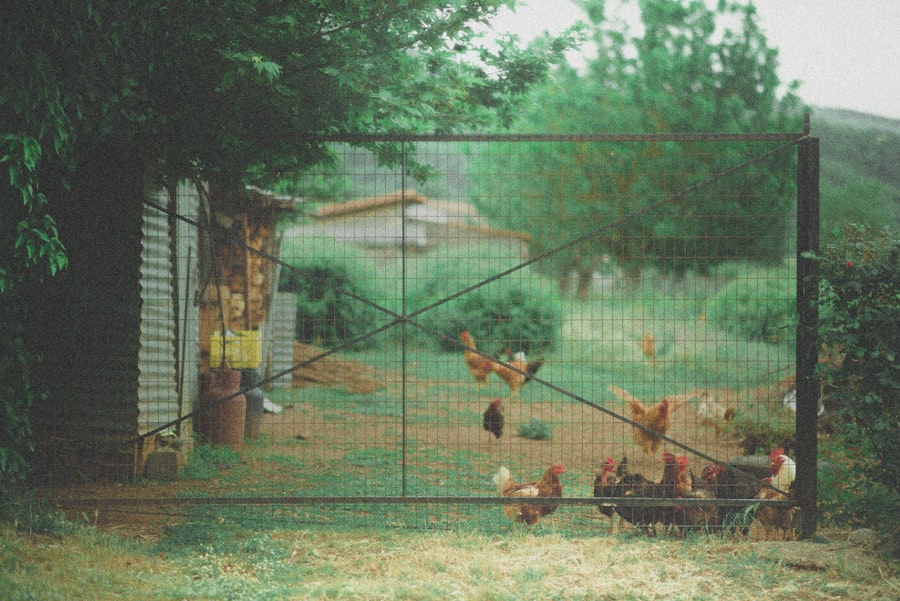Keeping chickens as pets offers numerous benefits and can be a rewarding experience. Chickens are known for their gentle temperament and sociable nature, making them suitable companions for people of all ages. These birds often form bonds with their caretakers and may follow them around the yard.
Their unique behaviors and amusing antics can provide entertainment and bring joy to households. Raising chickens also aligns with sustainable living practices. These birds efficiently convert kitchen scraps and garden waste into valuable resources such as eggs and nutrient-rich fertilizer.
This process helps reduce household waste and promotes a more environmentally conscious lifestyle. Moreover, keeping chickens for egg production provides families with a fresh, local source of protein. It also offers an educational opportunity for children to learn about food production, animal care, and responsible husbandry.
Table of Contents
- 1 Choosing the Right Breed of Chicken for Your Lifestyle
- 2 Creating a Comfortable Living Environment for Your Chickens
- 3 Feeding and Caring for Your Chickens
- 4 Health and Wellness for Your Feathered Friends
- 5 Understanding Chicken Behavior and Social Dynamics
- 6 Integrating Chickens into Your Family and Community
- 7 FAQs
- 7.1 What are the benefits of keeping chickens as pets?
- 7.2 What are some important considerations before keeping chickens as pets?
- 7.3 What are the basic needs of pet chickens?
- 7.4 What are some common health issues in pet chickens?
- 7.5 What are some tips for keeping pet chickens safe from predators?
- 7.6 What are some important legal considerations for keeping chickens as pets?
Key Takeaways
- Keeping chickens as pets can provide fresh eggs, natural pest control, and companionship.
- Choose a chicken breed that suits your lifestyle, whether it’s for egg production, meat, or ornamental purposes.
- Create a comfortable living environment for your chickens by providing a secure coop, nesting boxes, and access to fresh water and food.
- Proper feeding and care for your chickens includes a balanced diet, regular health check-ups, and protection from predators.
- Monitor the health and wellness of your chickens by observing their behavior, providing regular exercise, and seeking veterinary care when needed.
- Understand chicken behavior and social dynamics to ensure a harmonious flock and prevent aggression or bullying.
- Integrate chickens into your family and community by involving them in daily activities, educating others about their care, and following local regulations.
Choosing the Right Breed of Chicken for Your Lifestyle
Egg-Laying Breeds
If you’re looking for a breed that is known for its egg-laying abilities, you might consider popular breeds such as the Rhode Island Red or the Leghorn.
Meat Production Breeds
On the other hand, if you’re interested in raising chickens for meat, breeds like the Cornish Cross or the Freedom Ranger may be more suitable.
Environmental and Spatial Considerations
It’s also important to consider the climate and environment in which you live when choosing a breed of chicken. Some breeds are better suited to cold climates, while others thrive in warmer weather. Additionally, consider the space you have available for your chickens. If you have a small backyard, you may want to choose a breed that is known for its ability to thrive in confined spaces, such as the Bantam breed. Ultimately, it’s important to do thorough research on different breeds and their specific needs before making a decision.
Creating a Comfortable Living Environment for Your Chickens

Creating a comfortable living environment for your chickens is essential for their health and well-being. One of the most important aspects of their living environment is providing a secure and predator-proof coop. The coop should be spacious enough to allow for natural behaviors such as roosting and nesting, and should also provide protection from the elements.
Additionally, it’s important to provide adequate ventilation to prevent moisture buildup and ensure good air quality. In addition to the coop, chickens also need access to an outdoor run where they can scratch, peck, and forage. This outdoor space should be securely fenced to protect the chickens from predators and should provide access to fresh grass and insects.
Providing enrichment such as perches, dust baths, and toys can also help keep your chickens mentally and physically stimulated. Finally, it’s important to keep the living environment clean by regularly removing droppings and replacing bedding to prevent the buildup of bacteria and parasites.
Feeding and Caring for Your Chickens
Feeding and caring for your chickens is an important aspect of keeping them healthy and happy. A balanced diet is essential for chickens to thrive, so it’s important to provide them with a high-quality commercial feed that is appropriate for their age and purpose (e.g., laying hens vs. meat birds). In addition to commercial feed, chickens also benefit from access to fresh fruits and vegetables, as well as grit and oyster shells to aid in digestion and eggshell formation. It’s also important to provide clean water at all times, as chickens can quickly become dehydrated. Regularly cleaning and refilling waterers is essential to prevent the buildup of bacteria and algae. In terms of general care, it’s important to regularly check your chickens for signs of illness or injury, as early detection can be crucial in preventing the spread of disease. Additionally, providing regular dust baths and grooming your chickens can help keep them clean and free from parasites.
Health and Wellness for Your Feathered Friends
Maintaining the health and wellness of your feathered friends is crucial for their longevity and quality of life. One of the most important aspects of chicken health is disease prevention. This can be achieved through regular vaccinations, parasite control, and biosecurity measures such as quarantining new birds before introducing them to the flock.
Additionally, providing a clean living environment with good ventilation and proper nutrition can help support a strong immune system. Regular health checks are also important for monitoring the well-being of your chickens. This includes checking for signs of illness or injury, as well as monitoring egg production and overall behavior.
It’s also important to be familiar with common chicken health issues such as respiratory infections, egg binding, and bumblefoot so that you can respond quickly if any issues arise. Finally, providing opportunities for exercise and mental stimulation can contribute to the overall wellness of your chickens.

Chickens are social animals that thrive in groups, so it’s essential to provide them with opportunities for social interaction. This includes providing multiple roosting spots, nesting boxes, and feeding areas to prevent competition and aggression within the flock.
Introducing New Birds and Communication
Additionally, it’s crucial to introduce new birds gradually to prevent bullying and establish a pecking order. Chickens also communicate through vocalizations, body language, and pecking order dynamics. Understanding these forms of communication can help you identify signs of stress or illness within the flock.
Identifying Signs of Stress or Illness
By observing and understanding chicken behavior, you can identify signs of stress or illness within the flock. For example, excessive pecking or feather loss may indicate bullying or overcrowding, while changes in vocalizations or posture may indicate pain or discomfort. By recognizing these behaviors, you can better meet the needs of your chickens and ensure a peaceful coexistence within the flock.
Integrating Chickens into Your Family and Community
Integrating chickens into your family and community can be a rewarding experience that fosters a sense of connection with nature and promotes sustainable living practices. Involving children in the care of chickens can teach them valuable lessons about responsibility, empathy, and where food comes from. It can also provide opportunities for bonding and quality time spent outdoors together.
Additionally, involving neighbors in the care of your chickens can help build community relationships and promote awareness about sustainable living practices. Furthermore, integrating chickens into your family can also provide opportunities for educational experiences. For example, observing the life cycle of eggs from incubation to hatching can be a valuable learning opportunity for children.
Additionally, involving local schools or community groups in educational programs about chicken care and sustainable living practices can help promote awareness about these important topics. Overall, integrating chickens into your family and community can foster a sense of connection with nature while promoting sustainable living practices.
If you’re considering keeping chickens as pets, you may also be interested in learning about the mating season for turkeys. Understanding the breeding habits of different poultry can help you make informed decisions about the types of birds you want to raise. Check out this article on mating season for turkeys to expand your knowledge of poultry breeding.
FAQs
What are the benefits of keeping chickens as pets?
Keeping chickens as pets can provide a sustainable source of fresh eggs, natural pest control in the garden, and a source of fertilizer for plants. Additionally, chickens can be entertaining and provide companionship.
What are some important considerations before keeping chickens as pets?
Before keeping chickens as pets, it is important to check local regulations and zoning laws, as well as to consider the time, space, and resources needed to properly care for chickens. It is also important to consider the potential noise and odor that chickens may produce.
What are the basic needs of pet chickens?
Pet chickens require a secure and spacious coop for shelter, access to fresh water and a balanced diet, protection from predators, and regular health check-ups. They also need space to roam and scratch, as well as opportunities for dust bathing.
What are some common health issues in pet chickens?
Common health issues in pet chickens include respiratory infections, parasites, and egg-laying problems. It is important to monitor the health of pet chickens and seek veterinary care when necessary.
What are some tips for keeping pet chickens safe from predators?
To keep pet chickens safe from predators, it is important to secure the coop with sturdy fencing and locks, provide a safe and enclosed outdoor area, and use deterrents such as motion-activated lights or sound devices. It is also important to regularly inspect the coop for any potential entry points for predators.
What are some important legal considerations for keeping chickens as pets?
Legal considerations for keeping chickens as pets may include local regulations on the number of chickens allowed, zoning laws, and restrictions on roosters due to noise concerns. It is important to research and comply with any relevant laws and regulations.
Meet Walter, the feathered-friend fanatic of Florida! Nestled in the sunshine state, Walter struts through life with his feathered companions, clucking his way to happiness. With a coop that’s fancier than a five-star hotel, he’s the Don Juan of the chicken world. When he’s not teaching his hens to do the cha-cha, you’ll find him in a heated debate with his prized rooster, Sir Clucks-a-Lot. Walter’s poultry passion is no yolk; he’s the sunny-side-up guy you never knew you needed in your flock of friends!







